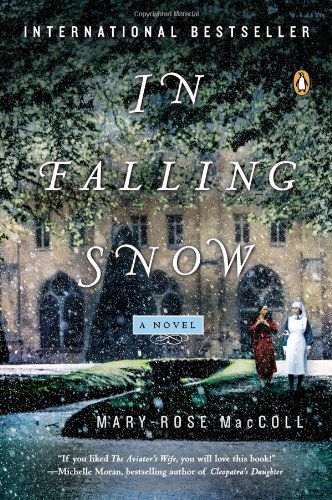In Falling Snow
Readers are spoiled for choice with new historical novels set during WWI. Most offer similar themes: navigating the era’s shifting social patterns, how its pointless loss affected generations, and how valor springs from impossible circumstances. Fortunately, each one that I’ve read offers a unique perspective. What distinguishes Mary-Rose MacColl’s international bestseller In Falling Snow are its realistic portrayal of human relationships and focus on women in medicine, in particular its inspiring depiction of the self-sacrificing wartime heroism of the women of France’s Royaumont Abbey.
The narrative has a three-part structure, with two sections flowing effortlessly into one another as Iris Crane’s mind drifts from present to past in old age. In 1914, having failed to stop her 15-year-old brother Tom from enlisting, Iris leaves Australia for Europe to bring him home to their worried father. She gets distracted from her mission after discovering her nurse’s skills are needed at Royaumont, a run-down Cistercian abbey north of Paris that’s being established as a field hospital. Working alongside its industrious chief physician Frances Ivens and hard-edged ambulance driver Violet Heron, Iris finds her calling. For her and its wounded soldiers, the capable medical sisterhood there makes Royaumont a secluded haven in the midst of horror.
Much later, in 1970s Brisbane, an invitation to a reunion reminds Iris of the leaden sense of guilt she’s carried since the war, the full reasons for which are carefully, if somewhat predictably, revealed. In a separate thread, Iris’ granddaughter Grace, an obstetrician in a nearly all-male field, struggles to reconcile her ambitions with her perfectionism and her family’s needs. Although I’m not normally drawn to modern medical dramas, I found Grace’s story gripping. The Royaumont segments are more leisurely paced, but they are immersive nonetheless. Just like Iris, I found myself drawn in and reluctant to leave.










